Giovanna Cicognani
Communication and Scientific Support Institut Laue-Langevin
Can you tell us about your studies? What scientific field did you specialise in?
I obtained a degree in Nuclear Engineering from Bologna University (Italy) and specialised in neutron instruments and methods. Within my specialisation studies, I was offered a one year contract by the CEA-Grenoble for the optimisation of the growing technique of very thin films.
When I left the CEA and came back to Italy, I was offered a 2 year research fellowship at the Physics Department of the University of Ancona, and started my first steps in neutron scattering. I spent one year in Rez (Prague), working on small-angle neutron scattering, and one year at HMI (Berlin), doing mainly small-angle and residual stress measurements.
During this fellowship, I started looking for a PhD contract, and I was offered one by the Detector Group of the ILL, to build a neutron microstrip detector for high resolution applications: I left neutron scattering again, but I landed at the ILL !
Since I had first heard of it, I had always dreamt of working at the ILL: an international large scale facility, leader in science and technology, the natural yardstick for everyone. And today, after 15 years in this Institute, I am still happy and proud to be part of its team.
Tell us more about your neutron-scattering background?
During my research contract with the University of Ancona, I used small-angle neutron scattering and diffraction experiments (in Rez and HMI) for the characterisation and stress strain profile determination in different type of materials (mainly with engineering applications). I also performed neutron topography measurement for single crystal quality determination at the ILL.
When I was appointed instrument scientist at the ILL, on a time-of-flight machine, I started working on the dynamics determination of disordered materials.
Can you tell us step by step how you reached your current position?
After my PhD thesis, I got a contract with the Italian Institute INFM, and became co-responsible of the ILL instrument IN4, at that time under refurbishment. I shared the joys and struggles of the commissioning period with Hannu Mutka, whose calm and guidance I very much appreciated. My major tasks were the construction of the double focusing monochromator and of the small-angle detector.
In 2000, I obtained the ILL Scientific Co-ordinator position, left vacant after Herma Büttner’s departure to new horizons. Following her path, I obtained a Masters degree in ‘Science Communication’, at Birkbeck College (University of London). Since 2005, I have also been in charge of the ILL Communication Unit.
Have you got publications?
During my PhD, I built and tested a new detector, based of the brand new microstrip technology. The number of publications issued from this work is low, but not negligible considering that we published them only once the detector was finished, and that I left the field afterwards. Similarly, afterwards, as an instrument scientist of an under construction/commissioning instrument (IN4), I mainly published results obtained via local contacting on other instruments. And after having taken over the Scientific Co-ordinator position, I gradually phased out my scientific activity, which explains why my publication record is very quick to display!
- 19 refereed publications
- articles in conference proceedings
- Editor of annual reports, brochures and newsletters
- Co-editor of the “Science in School” journal
Who or what is your mentor or greatest inspiration?
I had different mentors for different periods in my life.
My father was the first one, a brilliant and witty person who taught me – amongst other things – curiosity, ethics and method, essential elements in a scientific career, and life in general by the way.
During my PhD thesis, Anton Oed was an inspiring and stimulating supervisor. I learnt a lot from him, more than from ordinary university lectures.
José Dianoux, my group Leader when I joined the ILL time-of-flight group, gave me a fund of great advice – a guide and a friend. I owe him a lot.
And last but not least, Colin Carlile (ILL director from 2001 to 2006) was exciting and rewarding to work with.
Have you experienced any difficulties because of your gender?
The times we live in are terrific, where gender parity is the reality in many respects. Men and women are different of course and have different ways of working or of tackling problems. But I never felt at a disadvantage being a woman; rather the contrary, especially in my present position in which communication and inter-personal skills are important.
However, the ILL middle management is heavily dominated by men, and I feel that, even if it is not a disadvantage, it is at least very different being the only woman (I would even say “mother”) amongst over 20 heads of services at the ILL.
What percentage of your time to you dedicate to your family/ work/ for you?
Since my child was born, I do everything I can to share my time between work and family in the best way. For example, I have chosen to eat quickly a sandwich (which is not ideal, I admit, for my health or my relationship with my colleagues) and to catch up with emails in the evenings so that I am able to go home earlier. Unfortunately, because of my responsibilities, I couldn’t afford to devote more time to my child during his first years by a reduction of my working hours – as many mothers in France usually can. Nevertheless, I really feel that I have found the right balance, despite the fact that my son, my husband and even my dog sometimes disagree with it!
What is the most challenging thing you have faced in your career?
After my university studies and my early years abroad, I settled in Grenoble for my PhD. After that, because my partner at that time had a permanent position in industry, I was forced to review my career aspirations needing to remain in the Grenoble region. I was extremely lucky to be able to stay at the ILL, with a series of different contracts and activities, the other side of the coin being that I had to start over from scratch many times. I ended up knowing many different things but not being an expert in any. Not to excel in your job is difficult to accept when you have always been a very successful student, but this helped me in to develop other qualities, including humility. And at the end, my wealth of experience (I worked in 6 different labs/universities in 4 different countries) compensates for the lack of specialisation: it turned out to be an asset for my present position.
Contact details
Dr. Giovanna CICOGNANI
Communication and Scientific Support
Institut Laue-Langevin
PO Box 156 – 38042 GRENOBLE Cedex 9
France
Tel: +33 476 20 71 79
Fax: +33 476 48 39 06
Email: cico@ill.eu
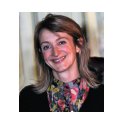
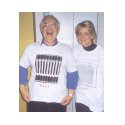
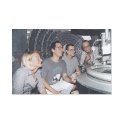
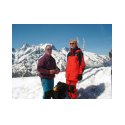
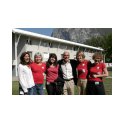 Back to previous page
Back to previous page
